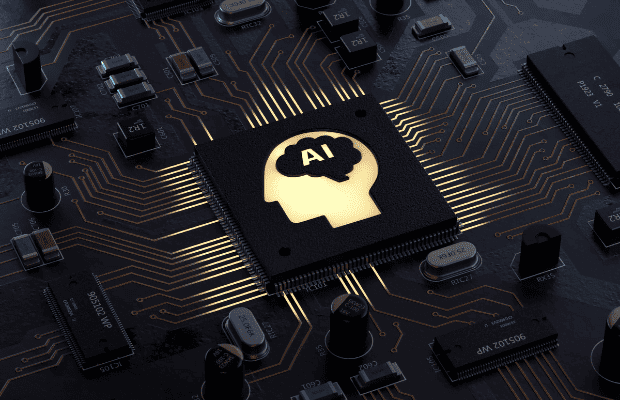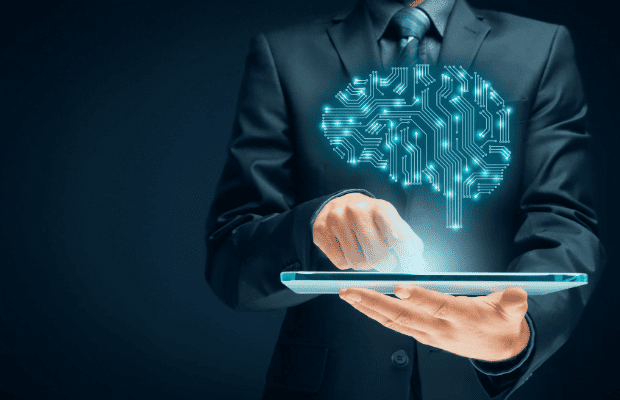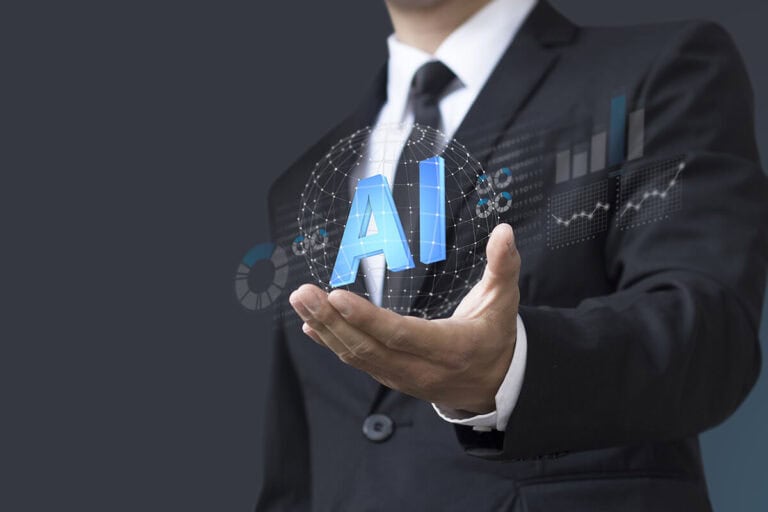AI disrupts industries and brings new capabilities.
Table of Contents
ToggleHuman intelligence that gave birth to intelligent machines like computers could not help utilizing those very machines for all sorts of repetitive tasks consuming too much human energy and resources. The way computers continued to play a bigger and definitive role in taking care of all sorts of tasks with heavy input loads is itself a testimony of the increasing dependence of humans on the machine’s capabilities.
So, when Artificial Intelligence (AI) as a groundbreaking technology arrived, making machines capable of acting by using human reasoning, it couldn’t be too much of a surprise. One subset of AI technology, Machine Learning (ML), further extended this capability by helping machines to learn from human inputs and user behavior. Thus, we entered a new era where machines have better control over digital interactions than ever before.

No wonder successful mobile apps couldn’t ignore the significant impact of AI and Machine Learning. At present, both of these technologies have become powerful solutions and tools for the entire mobile app development fraternity. As Paul Osborne, the chief of product development at Cerdonis Technologies explained, “AI and Machine Learning has opened up new vistas of apps on every front. There’s no going back from here.”
The Difference Between AI and ML
Though both Artificial Intelligence and Machine Learning have already become crucial technologies for building intelligent and highly user-centric apps, these two technologies have a few differences that we need to remember.
AI represents the broader technology field that allows computer programs, apps, and algorithms to use human reasoning for solving all sorts of problems. Under the purview of AI, we have multiple technologies and subsets ranging from the mobile voice recognition assistants Amazon Alexa, Google Assistant, Apple Siri to technologies like Natural Language Processing (NLP) to more powerful computation based Deep Learning and Machine Learning technologies.

Machine Learning is only a subset of the AI technology that gathers data from user behavior, learns from user inputs, and helps the machine react. ML, also by analyzing user behavior patterns, can predict the next thing to happen.
Personalization: Biggest AI and ML Impact for Mobile Apps
An AI-powered algorithm working deep in your mobile app can scan multiple facets of data corresponding to user behavior, preferences, constraints, or pain points. Machine Learning algorithms can easily learn about user likes and dislikes, their buying and subscription patterns, their loyalty to digital products.
By using this data, customers can be segmented into groups and targeted by the custom app contents and features. Together with AI and ML thus opens huge scope customization to target different user groups with content and features they are looking for.
Automating Tasks
By incorporating AI and ML technologies, an increasing number of mobile apps are also taking advantage of intelligent automation for different tasks. AI and ML-based chatbots are widely being used by focused consumer brands in their apps to provide faster customer support and service.
A chatbot having deeper knowledge about each individual user can orchestrate the conversation and interaction. Accordingly, it can push for better business conversion and support to ensure optimum customer satisfaction. AI-powered intelligent automation is increasingly creating a level playing field between small and big business brands regarding excellent proactive customer support.

Data-Driven Design and Development Decisions
Today’s app development process tends to become more iterative and feedback-driven to ensure great market acceptance. This is why the Minimum Viable Product (MVP) approach is becoming so popular among the development companies. Thanks to AI and ML technologies, such as iterative and feedback-based development, gained more legitimacy.
AI and ML algorithms collecting user behavior and preference data can actually help to identify the negative and positive triggers for different app features and functionalities, and based on these data-driven insights, designers and developers can make more effective decisions concerning future updates and value additions.
Enhanced App Security
Since mobile apps are increasingly being used for carrying out online transactions and crucial data transfer in different contexts and industries, they are continually being targeted by hackers and all sorts of malicious data breaching efforts. AI and ML-powered security solutions are now coming as the latest safeguards to take care of these security risks.
Artificial Intelligence and machine learning technologies are increasingly being used in mobile apps for facilitating streamlined and secure authentication of apps. Intelligent features such as voice and face recognition or biometric authentication have appeared to be the most robust security cover for mobile app authentication.
AI and ML technologies are also being incorporated as part of the security settings to detect anomalies and irregularities in user behavior and certain patterns, triggering security concerns. From fraud detection to preventing data or identity theft to preventing network security threats, AI and ML-based solutions are already very much part of the mobile app security,
Conclusion
With the kind of prowess and potential AI and ML has already showcased through the mobile app projects across the niches, these two technologies are very likely to be the parts of the app ecosystem for the years to come. The only thing that you need to make sure is the AI and ML should be creatively utilized for different needs instead of just picking them up as ready to use features.
Summary:
Artificial Intelligence vs Machine Learning in Mobile Apps
AI disrupts industries and brings new capabilities. Successful mobile apps couldn’t ignore the significant impact of AI and Machine Learning. At present, both of these technologies have become powerful solutions and tools for the entire mobile app development fraternity. An AI-powered algorithm working deep in your mobile app can scan multiple facets of data corresponding to user behavior, preferences, constraints, or pain points. Machine Learning algorithms can easily learn about user likes and dislikes, their buying and subscription patterns, their loyalty to digital products. By incorporating AI and ML technologies, an increasing number of mobile apps are also taking advantage of intelligent automation for different tasks. Since mobile apps are increasingly being used for carrying out online transactions and crucial data transfer in different contexts and industries, they are continually being targeted by hackers and all sorts of malicious data breaching efforts. AI and ML-powered security solutions are now coming as the latest safeguards to take care of these security risks.





